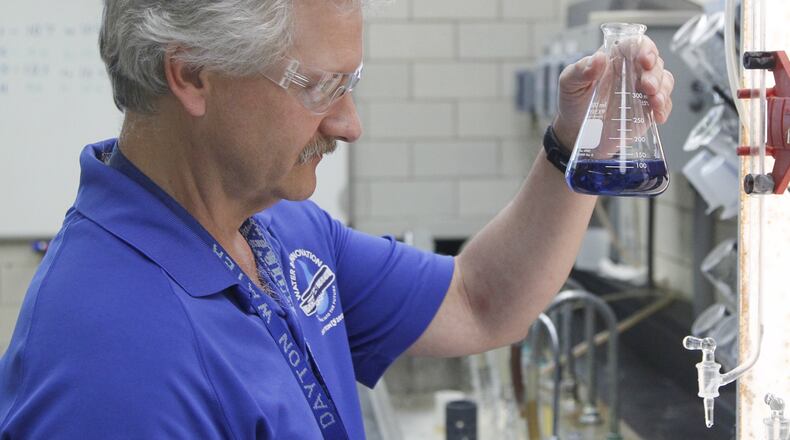The first 50 participants will receive lead, arsenic and manganese tests free. Others can purchase metal tests for $12 for the first metal and $4 for each additional metal. All residents will be able to purchase discounted bacteria test kits for $20.
High nitrate/nitrite levels could cause a potentially fatal blood disorder in infants called methemoglobinemia or “blue-baby” syndrome, according to the U.S. Environmental Protection Agency. Lead is poisonous to humans, especially children younger than age 6.
» Ohio EPA declines to mediate Dayton, Montgomery County water talks
The tests will not detect PFAS, the chemical that has been found in Dayton-produced drinking water below advisory levels established by the U.S. EPA. The city of Dayton, which produces the water sold to Montgomery County, already tests for PFAS and the county has recently announced it also will test for them.
Residents who wish to participate in the Test Your Water event are asked to bring a one-liter water bottle containing their tap water. The sample should be collected after six-hours of non-use or right when the customer turns on the water in the morning.
Representatives from Public Health — Dayton & Montgomery County and the Ohio Water Well Association will be on hand to answer questions.
The event will be held 4 to 6 p.m. July 23 at the Montgomery County Environmental Lab, 4257 Dryden Road in Moraine. Call 937-781-2562 for more information.
Read more Dayton Daily News water coverage:
» Should Ohio set its own limits for chemical in drinking water?
» Contaminants in Dayton water above what some states consider safe
» Understanding Dayton’s drinking water issues
» Progress slow in addressing chemicals in local water systems
About the Author
